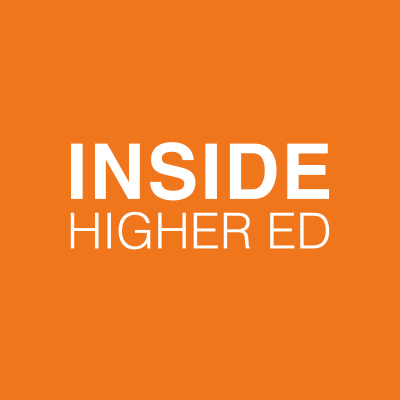
Higher Ed. Dive
April 12, 2021 Enrollment Management Trends
Data reported by the National Student Clearinghouse Research Center reflects enrollment decreases in the transfer student population. The American Council on Education recently shared strategies with regard to editing credit transfer policies, a large barrier for enrollment of transfer students.

Higher Ed. Dive
April 05, 2021 Enrollment Management Trends
Following the pandemic related travel restrictions and tightened visa policies, international student enrollment fell 16% last fall. While many assumed that these numbers would bounce back for fall 2021, many factors including competition and the legacy of the previous presidential administration will likely stagnate recovery and hamper tuition revenue for several years.

Inside Higher Ed.
March 29, 2021 Admissions, Enrollment Management Trends, Student Success
The pandemic has led to a surge in applications at the most competitive colleges, both public and private. New applications include minority and low-income applications, and many top college also admitted large early decision/early-action classes. As a result, predicting yield will likely be more difficult this year, and institutions will likely rely on waiting lists more than they normally do.

Higher Ed. Dive
March 26, 2021 Enrollment Management Trends, Research
Rutgers is the first-known higher education institution to mandate the COVID-19 vaccine for students, increasing transparency of its plans for fall 2021 and assisting students and families with the decision-making process for post-secondary enrollment. Public health and legal experts predict more colleges will follow.

Higher Ed. Dive
March 25, 2021 Student Success, Value and Affordability
Higher education interest groups and institutional leaders have lobbied the federal government to increase the size of the Pell Grant for years, with renewed urgency due to the COVID-19 pandemic. President Biden said on the campaign trail that he wants to double the Pell Grant, and with the passage of the latest relief package, his administration can now focus on other matters.

Higher Ed. Dive
March 11, 2021 Enrollment Management Trends
Undergraduate enrollment at public four-year schools continues to fall compared to one year ago, according to preliminary data from the National Student Clearinghouse Research Center. Graduate enrollment has continued to grow from the fall.

The Chronicle of Higher Education
March 11, 2021 Enrollment Management Trends, Student Success, Value and Affordability
The article features a series of graphics that highlight the financial and socio-emotional costs the COVID-19 pandemic has imposed on the higher education industry.

The Chronicle of Higher Education
March 09, 2021 Admissions, Enrollment Management Trends, Student Success, Value and Affordability
This opinion article describes the unique issues enrollment management leaders are experiencing with regard to predicting enrollment and yield for fall 2021. (Subscription required)

Inside Higher Ed.
March 08, 2021 Admissions, Enrollment Management Trends
The National Association for College Admission Counseling has created a commission to rethink the college admissions process “through a racial equity lens.” NACAC has identified three priority areas for the commission to explore, including the college entrance experience, postsecondary financial aid requirements, and the role of racial equity in postsecondary enrollment.

Education Dive
March 02, 2021 Admissions, Enrollment Management Trends
Colleges using the Common App received nearly 6 million applications by February 15, driven by a variety of factors. Prospective students are applying to more institutions this year and interest in large, more-selective private schools rose, particularly from international and first-generation students, students from traditionally underrepresented racial minority groups, and those who receive fee waivers